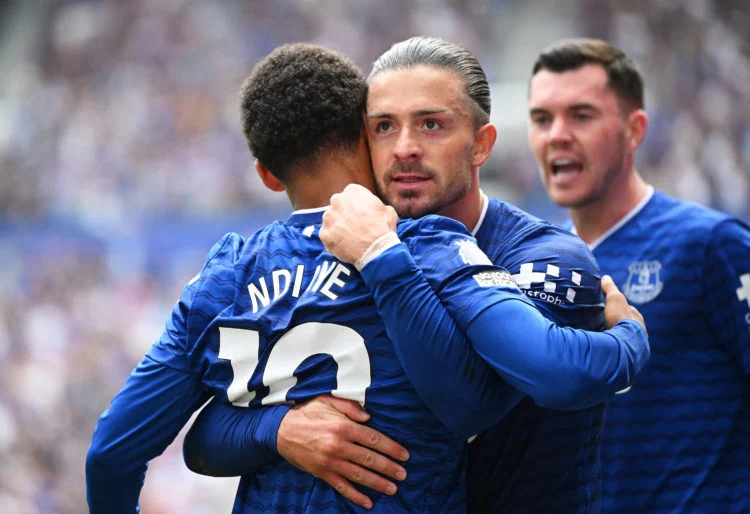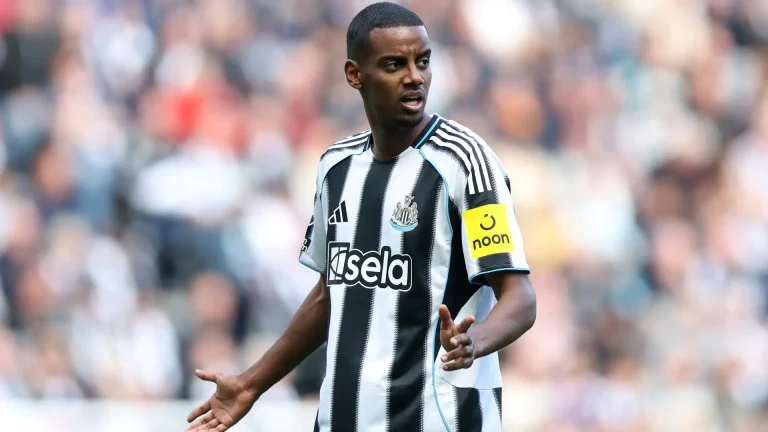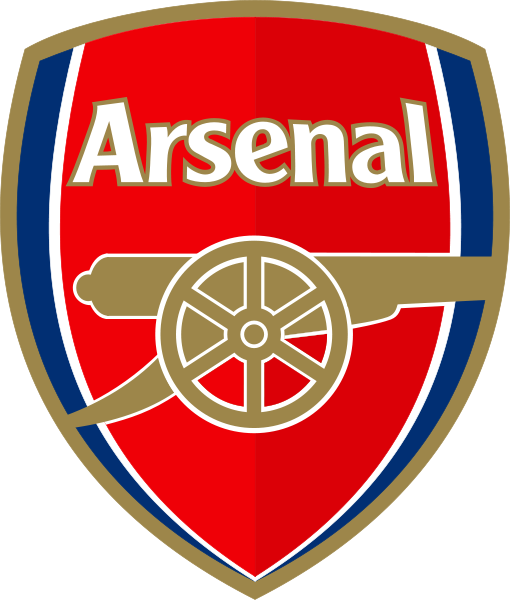
Arsenal FC
Arsenal, based in Islington, London, England, competes in the Premier League, the highest tier of English football. The club has a storied history, having secured 13 League titles, a record 13 FA Cups, 2 League Cups, the League Centenary Trophy, 15 FA Community Shields, a UEFA Cup Winners’ Cup, and an Inter-Cities Fairs Cup. Notably, Arsenal is the only English team to complete a 38-match league season unbeaten, earning the nickname “The Invincibles” and a special gold Premier League trophy.
Founded by munitions workers in Woolwich as Dial Square in 1886, Arsenal joined The Football League in 1893 and reached the First Division by 1904. They were relegated only once in 1913 but hold the record for the longest continuous presence in the top division and have the second-most top-flight victories in English football. The 1930s saw Arsenal win five League Championships and two FA Cups, with additional titles following WWII. The club achieved its first League and FA Cup Double in 1970-71. Between 1989 and 2005, Arsenal won five League titles and five FA Cups, including two Doubles, finishing the 20th century with the highest average league position.
Herbert Chapman, who led Arsenal to its first national trophies, innovated the WM formation, floodlights, shirt numbers, and the iconic red-and-white kit. Arsène Wenger, the club’s longest-serving manager, won a record 7 FA Cups and led Arsenal through an English record 49-game unbeaten run.
Initially founded as Dial Square in 1886, the club moved to Highbury in 1913, creating a fierce rivalry with Tottenham Hotspur, known as the North London derby. Arsenal transitioned to the Emirates Stadium in 2006. In terms of revenue, Arsenal was the sixth highest-earning football club globally in the 2016-17 season, with a fanbase ranked fifth in the world based on social media activity from 2014-15. Forbes valued Arsenal at $2.0 billion in 2016, making it the second most valuable club in England.
The club’s early days saw them named Royal Arsenal F.C. and playing at Plumstead Common. They became Woolwich Arsenal upon turning professional in 1891 and joined The Football League in 1893. Financial difficulties led to a relocation to Highbury in 1913 and a subsequent rebranding to The Arsenal, which was later simplified to Arsenal. Despite a contentious promotion to the First Division in 1919, Arsenal has maintained a prominent position in English football.
Under George Graham’s management in the late 1980s and early 1990s, Arsenal won their first League Cup, multiple league titles, and the European Cup Winners’ Cup. However, Graham’s tenure ended in controversy due to a financial scandal. Arsène Wenger’s era began in 1996, marked by a shift to attacking football and modern training methods, leading to multiple league and FA Cup victories, including the unbeaten 2003-04 season.
Arsenal consistently finished at the top of the league under Wenger, reaching the Champions League final in 2005-06. The club moved to the Emirates Stadium in 2006. A period of limited trophies ended with the 2014 FA Cup victory, and subsequent FA Cup wins solidified Arsenal’s record in the competition. Wenger, who won 7 FA Cups, departed in 2018 after 22 years, leaving a lasting legacy.
Trending Article
Achievement
The Invincibles (2003-2004): Arsenal went an entire Premier League season unbeaten, earning the nickname “The Invincibles.”
13 League Championships: Arsenal has won the English top-flight title 13 times, with the first in 1930 and the latest in 2003-2004.
14 FA Cups: Arsenal holds the record with 14 FA Cup victories, the first in 1930 and the most recent in 2020.
2 League Cups: The club has won the League Cup twice, in 1987 and 1993, noted for their dramatic finals.
17 Community Shields: Arsenal has won the Community Shield 17 times, starting in 1930.
European Cup Winners’ Cup (1994): Arsenal won their first European trophy in 1994, defeating Parma 1-0 in the final.
UEFA Cup Runners-up (2000): Arsenal reached the UEFA Cup final in 2000, showcasing dramatic comebacks and strong determination.
Unbeaten Run (2003-2004): Arsenal’s 49-game unbeaten run in the Premier League from May 2003 to October 2004 demonstrated their consistency and excellence.
Notable Player
Thiery Henry
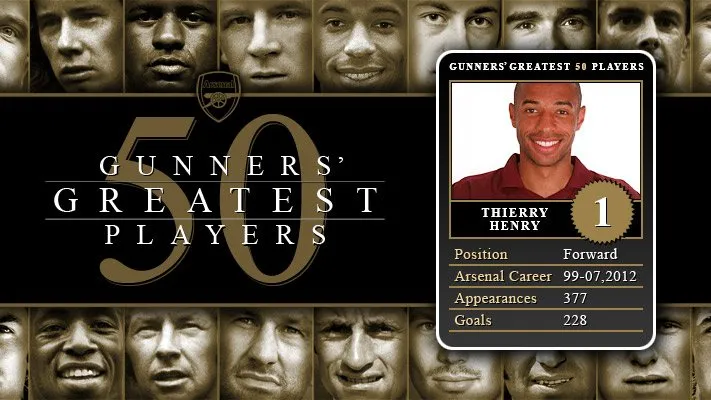
Top Scorer: Arsenal’s all-time leading scorer with 228 goals in 377 appearances.
Premier League Titles: Key in winning two Premier League titles (2001-02, 2003-04).
FA Cups: Helped win two FA Cups (2002, 2003).
Golden Boots: Won the Premier League Golden Boot four times (2002, 2004, 2005, 2006).
Iconic Moments: Known for his speed, skill, and memorable goals, including a famous volley against Manchester United in 2000.
Captaincy: Became captain in 2005, leading with distinction.
Departure and Return: Moved to Barcelona in 2007, returned on loan in 2012, scoring a dramatic winner against Leeds United.
Legacy: A statue outside Emirates Stadium and a lasting legacy as one of Arsenal’s greatest players.
Dennis Bergkamp
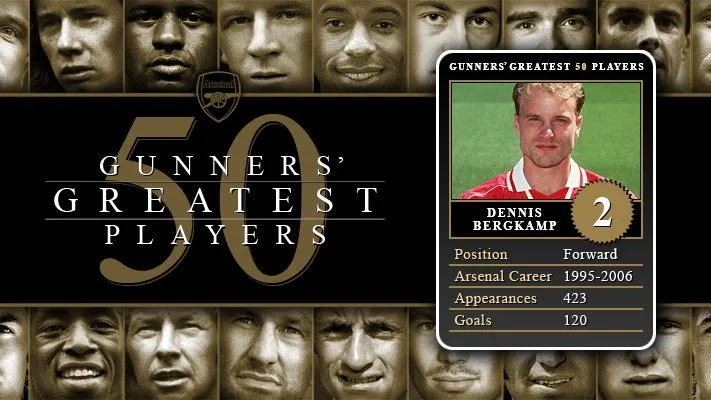
Arrival (1995): Joined from Inter Milan for £7.5 million, becoming Arsenal’s first major foreign signing.
Playing Style: Known for his vision, creativity, and technical skill; a master of the “second striker” role.
Achievements: Key in winning three Premier League titles (1997-98, 2001-02, 2003-04) and four FA Cups (1998, 2002, 2003, 2005).
Iconic Goals: Scored memorable goals, including a stunning turn and finish against Newcastle United in 2002.
Partnerships: Formed lethal partnerships with Thierry Henry and other forwards, enhancing Arsenal’s attack.
Awards: Won numerous individual accolades, including PFA Players’ Player of the Year in 1998.
Legacy: Regarded as one of Arsenal’s greatest players, with a statue outside Emirates Stadium commemorating his impact.

